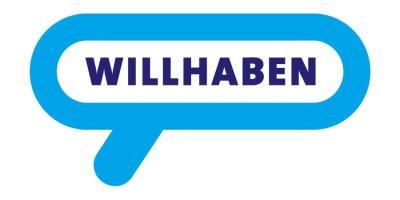The legal and technical preconditions are there, but Europeans still sceptical about shopping online. The Network of the European Consumer Centres (ECC-Net) examined the reasons for this uncertainty and if those are sufficient.
Electronic devices, branded clothes and shoes, goods of all kind - the Internet makes it possible to buy goods in a quick and comfortable way.
With the European order for payment procedures and the European small claims procedure, the opportunities for online shoppers to get what is their right were improved. If one paid in advance, for example, and didn't get his ordered goods, can now sue cross-border and set legal actions EU-wide.
Cross-border shopping
Online shopping becomes more and more popular among consumers, but only within the same country. 40 per cent of the European citizen shop online, but only 9 per cent buy from foreign online traders.
The reasons for this behaviour: Two thirds of the potential consumers fear fraud or improber advantage and half of them expect delivery problems. About 60 per cent of the citizens are uncertain about what they can do if problems occur and 44 per cent prefer to renounce when they're not familiar with the legal situation.
Wide range of problems
The European Consumer Centres wanted to find out more about the state of the European online market and if the concers of the consumers are sufficient. Within the framework of the analysis "Online Cross-Border Mystery Shopping - State of the e-Union", the conductors bought from online traders from all over Europe, all in all 305 purchases (books, clothes, CDs...).
Language, value added tax, payment procedures
One of the biggest obstacles was that 40 per cent of the online traders informed only in their national language and not in English. At one third of all purchases it was not clear if the price included the value added tax or not.
In only 6 per cent of all cases, payment by invoice was offered which is the safest way of paying for consumers as they only have to pay when they received the products and want to keep them. 95 per cent of all traders accept creditcard payment.
Returns take too long
Another problem, which occured to Austrian mystery shoppers, was the long duration of returns. Although the ordered goods from South Tyrol arrived after just a few days, it took 57 days to return them. As a result, the refund of the purchase price was delayed.
Identification is not always easy
It is important for online shoppers to know from whom they buy goods. Because only then they can check wether it is a professional and serious trader or not.
But getting this information can be tricky: A mystery shopper from Austria ordered goods from an allegedly British website. As he examined the website further, he found out that the trader was situated in the US. The goods were delivered, but a return was refused by the trader.
Places of Jurisdiction
In practice, it would be difficult for the buyer to get his rights as the legal competence would be a court in the US. This problem does not occur for orders within the EU, as, due the European order for payment procedures and the European small claims procedure, it is easier for the judiciary system to deal with irresponsible traders cross-border.
Improved conditions
Apart from a few individual outliers, the analysis shows that the conditions for shopping online have improved and that the main obstacle - delivery problems - has been reduced significantly.
Most products were delivered in the way it was ordered and without damages. In the few cases where the purchase price has already debited but the goods weren't delivered, 50 per cent of the traders refunded the money. In the remaining cases it was up to the buyer to revoke the debiting of his bank account.
OK - but with caution
All in all it can be stated that it is not per se dangerous for European consumers to shop cross-border. The European market is better than its reputation. Nevertheless, they are advised to be careful.
Prevention is better than cure
The analysis of the ECC-Net yielded the following tips:
- Trustmarks on a website are no guarantee. As long as there is no single EU-wide trustmark, the same precautions apply as for any other website.
- Read all information on the website carefully. Minimum conditions are: Post address in the EU, Norway or Iceland, a phone number and e-mail-address. In most cases, the websites included information about the company and their business conditions which were easy to find. If you can't find this information, don't trust the trader.
- Don't order if you don't understand the language on the website. A trader who offers his services EU-wide but doesn't translate his website is not trustworthy.
- Right to return: As a buyer you have the right to withdraw from the contract or to return the goods without giving any reason within the agreed period.
Last update on 01.12.2014









